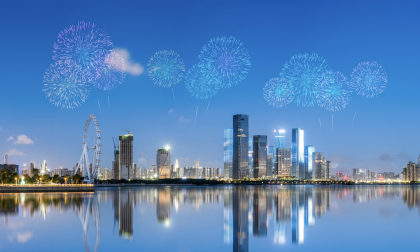BRICS Summit proved a triumph. Over the course of the last year, over 40 countries have expressed interest in joining BRICS. At the Summit, the previous five members became eleven, and no doubt more will follow. BRICS now represents 37% of global GDP. The developing world has acquired a powerful new voice on the global stage. And as further new members are added, its influence will surely grow.
If many scratched their heads in puzzlement about BRI when it was first announced, this has long ceased to be the case. Everyone now knows in varying degrees what it is about. In ten short years, it has become part of the global geo-economic firmament, no less than the IMF and the World Bank. It is not an exaggeration to suggest that over the decade of its existence it has changed the world.
We now find ourselves at a great historical juncture. Hitherto modernization was the preserve of a small minority of privileged countries in the world, with the great majority of the world excluded. Now modernization is no longer for a tiny sliver of humanity but is increasingly accessible to the great majority.
Europe’s wholesale acquiescence in America’s agenda for the Ukraine war, combined with its willingness to support, at least in part, the US’s growing assault on and demonization of China, have reminded us that Europe’s embrace of independence and its willingness to distance itself from Atlanticism, remains fragile and contested. We should not be surprised. Europe has looked westward across the Atlantic for several centuries. Its relationship with America has very deep roots and still exercises a powerful gravitational pull.
It seems that more and more America speaks with one anti-China voice which becomes more threatening and belligerent by the day. In March, finally, there was a chink of light. A statement by the Editorial Board of the New York Times called for a strategy of engagement rather than confrontation with China, arguing that confrontation was in neither America’s interests nor China’s. Whether it will have much influence remains to be seen, but hopefully it will encourage other voices to speak out too.
The West has always regarded modernity as singular. There is only one form of modernity and that is Western. Every country will eventually follow the Western path. Of course, this is a nonsense. Modernity is shaped by history and culture as well as economics and technology. There is not one modernity but many. The first example of non-Western modernity was Japan. China, having made enormous technological progress, is now thinking of the ways in which its modernisation will be distinctive and Chinese. Of course, Chinese modernisation will continue to share many features with Western and other modernities, but as a civilization-state, a huge country, and with an extraordinary history, Chinese modernity will also be strikingly different.
China has been making serious progress in its diplomatic influence since the beginning of the year. The most dramatic example is its pivotal role in the rapprochement between Iran and Saudi Arabia which took the whole world by surprise. It was an extraordinary demonstration of China’s power and diplomatic potential in seemingly almost any area of the world. Increasing attention is now being paid to how China might play a central role in bringing the Ukraine war to an end.
With unexpected speed, China has abandoned its zero-Covid policy. The West predicted a crackdown on the anti-Covid demonstrators. There has been no sign of it. China is once more open for business. It is seeking to restore its economic growth. This will help to galvanise the global economy. We are beginning to emerge into the post-Covid world.
Can the West demonstrate the intelligence and humility to learn from its own failures and China’s success in governance? The challenge is to understand the strengths of the Chinese political system and find ways of applying them to a Western democracy.

So what does the future hold? America will not be able to contain China. The latter will remain deeply connected with the world. China’s greatest strength is the close relationship it has built with the developing world.
Read more >
